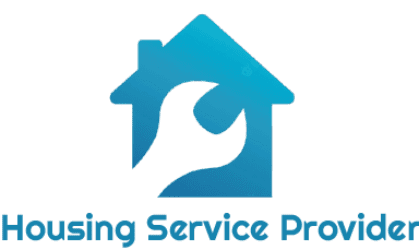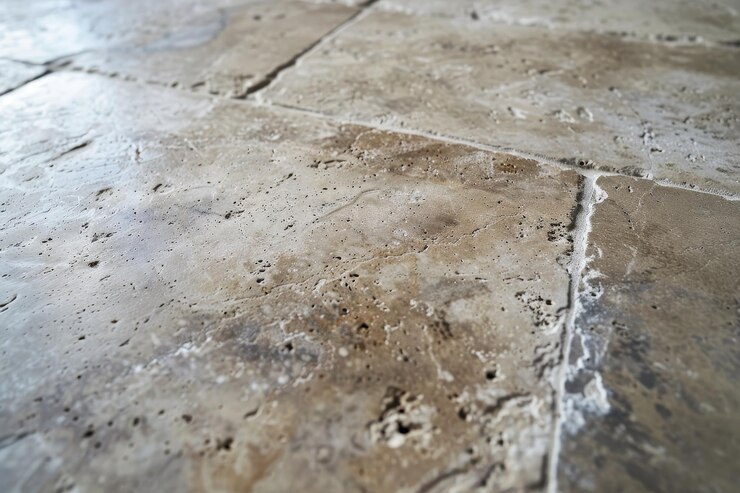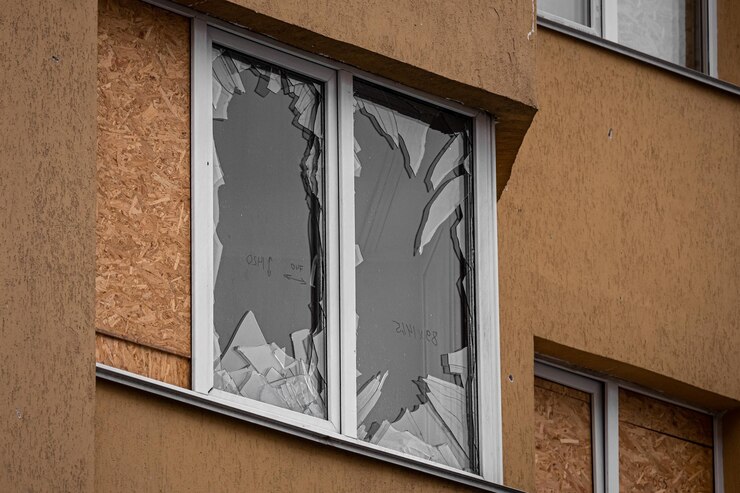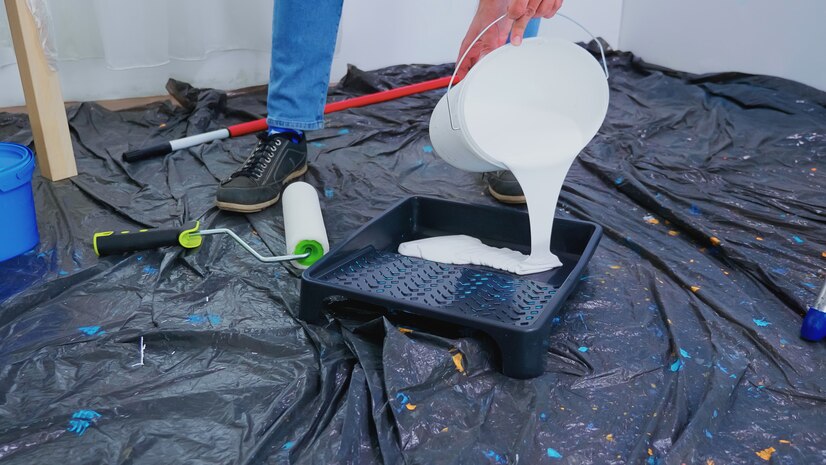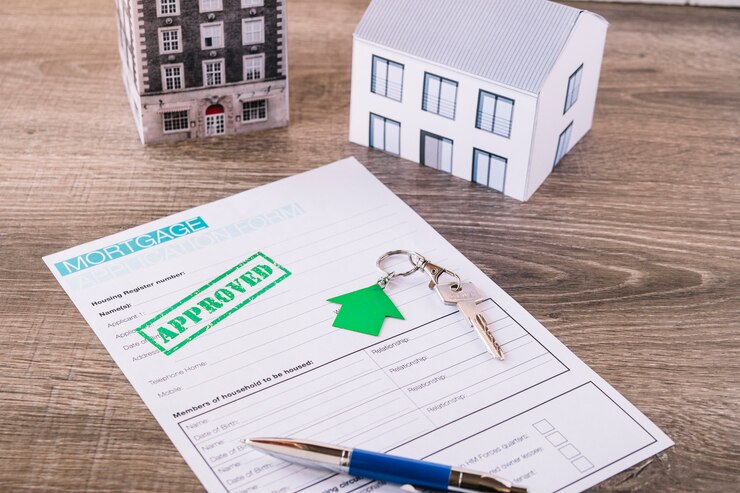Yes, home insurance can cover slab leaks. Slab leaks can cause significant damage to a home’s foundation and other structures, resulting in costly repairs.
Thankfully, many home insurance policies provide coverage for slab leaks. When a slab leak occurs, insurance typically covers the cost of repairing the leak and any resulting damage to floors, walls, and personal belongings. However, it is important to review the details of your specific policy as coverage can vary.
Be sure to check for any exclusions or limitations on coverage for slab leaks. In the event of a slab leak, contacting your insurance provider as soon as possible is crucial to initiating the claims process and minimizing further damage.
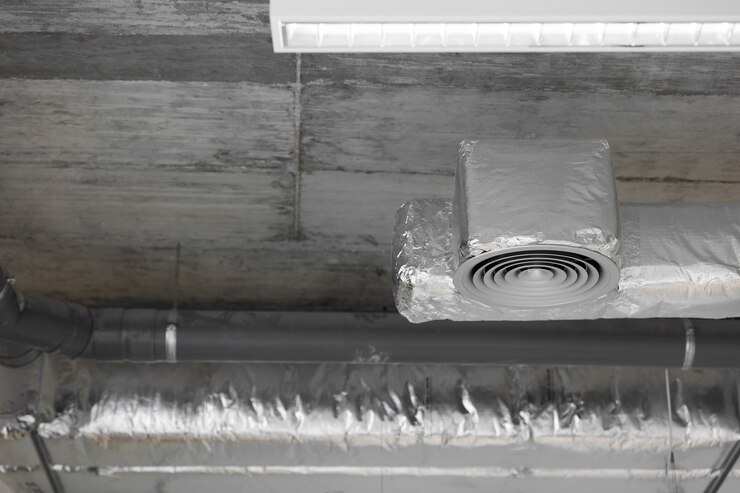
What Are Slab Leaks?
Definition And Explanation:
- Slab leaks refer to water leaks that occur underneath the concrete foundation of a building, often referred to as the slab. These leaks can be quite problematic as they are hidden from sight and can cause extensive damage if left untreated. Typically, these leaks occur in the water supply or drainage pipes that run underneath the slab.
Common Causes Of Slab Leaks:
- Age and deterioration of pipes: Over time, the pipes that run underneath the concrete foundation can deteriorate or become damaged, leading to leaks.
- Water pressure issues: High or inconsistent water pressure can put strain on the pipes, causing them to develop leaks.
- Shifting soil: Soil movement, particularly expansive soil, can exert pressure on the pipes, leading to cracks and leaks.
- Poor installation or construction: If the pipes were not installed correctly or the construction process was faulty, it can contribute to slab leaks.
Signs And Symptoms Of Slab Leaks:
- Increased water bills: A sudden increase in water bills without any evident reason could be a potential sign of a slab leak.
- Hot spots on the floor: If there are specific areas on the floor that feel warmer than others, it could indicate a hot water line leak underneath the slab.
- Damp or wet areas: Continuous moisture or dampness on the floor, especially in areas where there are no appliances or plumbing fixtures, may suggest a slab leak.
- Cracks in walls or floors: Slab leaks can cause the foundation to shift, resulting in cracks in walls or floors.
- Low water pressure: A decrease in water pressure throughout the house, especially if it occurs simultaneously with other signs, might signal a slab leak.
Please note that if you suspect a slab leak, it is essential to consult with a professional plumber or contact your home insurance provider to assess coverage and handle the necessary repairs.
Does Home Insurance Cover Slab Leaks?
Slab leaks can be a homeowner’s nightmare, causing significant damage and disruption. If you’re faced with this situation, you may wonder if your home insurance will cover the costs associated with slab leaks. In this section, we will clarify the coverage provided by home insurance policies when it comes to slab leaks and discuss the factors that determine this coverage.
Clarifying The Coverage Provided By Home Insurance Policies
- Home insurance policies typically cover sudden and accidental water damage, including situations like burst pipes or plumbing leaks. However, the coverage for slab leaks may vary depending on several factors.
- It’s important to note that coverage may differ between insurance companies and policies, so it’s crucial to review your specific policy to understand the extent of coverage provided.
- Home insurance policies usually offer coverage for the resulting damage from slab leaks, such as repairing the water-damaged flooring or walls. However, the coverage for the slab leak repair itself may vary.
Factors that determine coverage for slab leaks:
- Age of the property: Home insurance companies may consider the age of your property when determining coverage for slab leaks. Older homes with outdated plumbing systems may have a higher likelihood of experiencing slab leaks, leading to potential limitations on coverage.
- Maintenance and upkeep: Insurers may examine the regular maintenance and upkeep of your plumbing system. If negligence or lack of maintenance is evident, it could affect the coverage provided for slab leaks.
- Cause of the leak: Insurance companies will evaluate the cause of the slab leak. If it is due to wear and tear or aging infrastructure, coverage may be limited. However, if it is a sudden and unforeseen event like a pipe burst, coverage is more likely.
- Additional coverage: Some insurance policies offer optional coverage add-ons specifically for slab leaks. These add-ons can provide coverage for repairing or replacing the damaged plumbing, as well as any necessary excavation and access costs associated with repairing the slab leak.
While home insurance policies generally cover the resulting damage from slab leaks, the coverage for the slab leak repair itself may vary. It is essential to review your policy and consult with your insurance provider to understand the specific coverage provided for slab leaks in your situation.
Assessing Home Insurance Policies For Slab Leak Coverage
Home insurance is essential for protecting your property and belongings from unexpected disasters. However, when it comes to slab leaks, not all insurance policies provide coverage. Slab leaks occur when there is a leak in the water pipes beneath your home’s concrete foundation.
The damage caused by these leaks can be significant, leading to expensive repairs and restoration. In this section, we will review the factors you need to consider when assessing your home insurance policy for coverage of slab leaks.
Reviewing Your Policy For Named Perils Or Covered Perils:
To determine if your home insurance covers slab leaks, start by reviewing your policy for named perils or covered perils. These are events or risks that your insurance provider explicitly states will be covered. Look for any mention of water damage, pipe leaks, or plumbing issues in your policy.
If your policy includes these specific perils, there is a higher chance that slab leaks will be covered.
Here are a few points to consider:
- Water damage: Check if your policy covers water damage caused by plumbing leaks. Some policies specifically mention water damage resulting from sudden and accidental pipe bursts, which may include slab leaks.
- Plumbing system coverage: Look for coverage related to your plumbing system, including pipes and fixtures. If your policy explicitly mentions coverage for plumbing issues, there is a greater likelihood of slab leak coverage.
- Accidental damage: Assess whether your policy provides coverage for accidental damage. Slab leaks are often unexpected and can be classified as accidental damage under certain policies.
Understanding Policy Exclusions Related To Slab Leaks:
While it is essential to review the covered perils, it is equally crucial to understand the policy exclusions to determine if your home insurance covers slab leaks. Exclusions are events or risks that your insurance provider explicitly states will not be covered.
Look for any mention of specific exclusions related to water damage or plumbing issues.
Consider the following information:
- Gradual damage: Many insurance policies exclude coverage for gradual damage, which includes long-term leaks or seepage. Slab leaks that occur over time may fall under the category of gradual damage, resulting in potential denial of coverage.
- Maintenance-related issues: Some policies may not cover damages caused by maintenance issues, such as wear and tear or lack of regular upkeep. If your slab leak is determined to be a result of maintenance-related issues, it may not be covered.
- Negligence: Insurance providers often exclude coverage for damages caused by negligence. If your slab leak is found to be a result of negligence or lack of timely repairs, coverage may be denied.
Understanding your policy’s covered perils and exclusions is critical to assessing the coverage for slab leaks. Remember, every insurance policy is unique, and coverage can vary. It is advisable to consult with your insurance agent to clarify any doubts and ensure you have adequate protection against slab leaks.
Optional Coverage For Slab Leaks
Optional coverage for slab leaks:
Slab leaks can be an unexpected and costly problem for homeowners. While standard home insurance policies typically cover sudden and accidental water damage, they may not fully protect you when it comes to slab leaks. That’s where optional coverage can make all the difference.
By evaluating the need for additional coverage, you can ensure that you are adequately protected against the potential financial burden of slab leaks. Here are some additional coverage options available for slab leaks:
Enhanced Water Damage Coverage:
- If your standard home insurance policy doesn’t provide sufficient coverage for slab leaks, you may consider adding enhanced water damage coverage.
- This coverage typically includes protection for water damage resulting from slab leaks, ensuring that you won’t be left empty-handed when faced with the expenses associated with repairing and restoring your home.
Plumbing System Endorsement:
- Another option to consider is a plumbing system endorsement, which provides coverage specifically for your plumbing systems, including slab leaks.
- With this endorsement, you can have peace of mind knowing that if a slab leak occurs, you won’t have to shoulder the repair costs alone.
Equipment Breakdown Coverage:
- Equipment breakdown coverage is yet another option worth considering, as it can help protect you from the financial consequences of a slab leak.
- This coverage is designed to cover the repair or replacement of damaged equipment, including your plumbing systems, caused by an accidental breakdown or failure.
Personal Property Extension:
- In the unfortunate event that your personal belongings are damaged as a result of a slab leak, a personal property extension can provide additional coverage.
- This extension will help you recover the cost of repairing or replacing your damaged possessions, ensuring that you won’t be left to bear the financial burden on your own.
Service Line Endorsement:
- A service line endorsement offers coverage for the repair or replacement of external service lines, such as water and sewer lines, which may be damaged due to slab leaks.
- By adding this endorsement to your policy, you can protect yourself from the potentially significant expenses associated with repairing or replacing these essential service lines.
Considering the potential financial impact of slab leaks, it’s crucial to assess whether optional coverage for slab leaks is right for you. By exploring these additional coverage options, you can ensure that you have adequate protection in place to handle the unexpected costs of slab leak repairs and minimize any potential disruption to your home and daily life.
Remember, prevention is always better than cure, and having the right coverage in place can give you peace of mind as a homeowner.
Filing An Insurance Claim For Slab Leaks
Slab leaks can be a major headache for homeowners. These hidden leaks in the foundation of a house can cause significant damage and require costly repairs. If you have home insurance, you may be wondering if it will cover the expenses associated with slab leaks.
In this section, we will discuss the steps to take when filing an insurance claim for slab leaks, as well as the documents and evidence required for the claim process.
Steps To Take When Filing A Claim For Slab Leaks:
- Notify your insurance company: The first step is to inform your insurance company about the slab leak as soon as you become aware of it. Contact your insurance agent or the claims department to initiate the claims process.
- Document the damage: Take photographs or videos of the slab leak and the resulting damage to provide visual evidence. This documentation will help support your claim and ensure a smooth process.
- Understand your policy: Review your home insurance policy to determine if it covers slab leaks. Look for specific terms or exclusions related to water damage and foundation issues. Familiarize yourself with the coverage limits and deductibles.
- Hire a professional: It’s important to have a professional assess the extent of the damage and provide a written estimate for the repairs. This estimate will serve as evidence for the insurance claim.
- Mitigate further damage: Take immediate steps to prevent further damage, such as plumbing repairs or temporary measures to stop the leak. Document these actions and keep receipts for any expenses incurred.
Documents And Evidence Required For The Claim Process:
- Claim form: Fill out the insurance company’s claim form accurately and provide all requested information. Double-check the form for any errors or missing details.
- Proof of ownership: Provide documents that establish your ownership of the property, such as the deed or purchase agreement.
- Repair estimate: Include a written estimate from a professional contractor detailing the necessary repairs and associated costs.
- Photographic evidence: Submit photographs or videos of the slab leak and the resulting damage as visual evidence of the claim.
- Receipts and invoices: Keep all receipts and invoices related to the repairs and any expenses incurred due to the slab leak, such as temporary accommodation or additional plumbing services.
- Maintenance records: If you have a history of regular maintenance for your plumbing system or foundation, provide these records to demonstrate that you have taken proper care of your home.
Remember to keep copies of all documents and maintain open communication with your insurance company throughout the claims process. It’s important to act promptly and provide all requested information to ensure a smooth and successful claim for your slab leak repairs.
Common Misconceptions About Home Insurance And Slab Leaks
Addressing Misconceptions About Coverage
Many homeowners are often unclear about whether their home insurance policy covers slab leaks. This lack of understanding can lead to confusion and frustration when faced with the unexpected costs of repairing a slab leak. In this section, we will debunk some common misconceptions surrounding home insurance and slab leaks to provide you with accurate information and peace of mind.
Clearing Up Myths And Providing Accurate Information
- Myth 1: Home insurance automatically covers slab leaks: contrary to popular belief, not all home insurance policies automatically cover slab leaks. It’s important to review the terms and conditions of your policy to determine if it includes coverage for this specific issue.
- Myth 2: Standard homeowners insurance policies cover all water damage: while most standard home insurance policies cover sudden and accidental water damage, they may exclude coverage for certain types of water damage, such as long-term leaks or gradual damage. This could include slab leaks which develop over time.
- Myth 3: Slab leaks are always considered “hidden” damage: while slab leaks can often be hidden from plain sight, not all home insurance policies provide coverage for hidden damage. Some policies may require clear evidence of sudden and unexpected damage to qualify for coverage.
- Myth 4: Home insurance covers the cost of repairing the slab leak itself: home insurance policies typically cover the resulting damage caused by a slab leak, such as water damage to walls, floors, or furniture. However, the repair of the actual slab leak itself may not be covered unless it meets specific criteria outlined in your policy.
- Myth 5: All home insurance policies offer the same coverage for slab leaks: home insurance policies can vary significantly in terms of coverage for slab leaks. Some policies may offer more comprehensive coverage, while others may have exclusions or limitations. It’s essential to understand the specifics of your policy and consider additional coverage options if necessary.
- Myth 6: Flood insurance covers slab leaks: flood insurance typically covers damage caused by natural disasters, such as flooding from external sources like heavy rain or hurricanes. It does not typically cover damage caused by internal plumbing issues such as slab leaks.
Understanding the truths behind these myths can help you make informed decisions when it comes to purchasing or reviewing your home insurance policy. It’s crucial to read your policy carefully, ask your insurance provider specific questions regarding slab leaks, and consider additional coverage options if needed.
By being well-informed, you can protect your home and finances against the potential costs associated with slab leaks.
Tips For Preventing And Detecting Slab Leaks
A slab leak can be a nightmare for homeowners. Not only do these leaks cause significant damage to your property, but they can also lead to expensive repairs and even health hazards like mold. That’s why it’s crucial to take steps to prevent and detect slab leaks early on.
In this section, we will discuss some useful strategies and methods to minimize the risk of slab leaks and ensure early detection and prevention.
Strategies To Minimize The Risk Of Slab Leaks:
- Conduct regular inspections: Regularly inspecting your home’s plumbing system can help identify any potential issues before they escalate into slab leaks. Look for signs of moisture, dampness, or water stains on walls, floors, or ceilings.
- Maintain proper water pressure: High water pressure can lead to increased stress on your pipes, increasing the likelihood of leaks. Consider installing a pressure regulator to maintain the water pressure at an optimal level.
- Avoid chemical drain cleaners: Chemical drain cleaners can be harsh on your pipes and cause corrosion, weakening their integrity. Instead, use alternative methods like natural drain cleaners or consult a professional plumber.
- Be cautious with landscaping: When planting trees or shrubs near your home, ensure that their roots won’t intrude upon your underground pipes. Tree roots can cause substantial damage to your plumbing system over time.
- Insulate pipes: Proper insulation can protect your pipes from extreme temperature fluctuations and prevent them from freezing or bursting, which can result in slab leaks. Insulate exposed pipes in colder areas of your home, such as attics, basements, or crawl spaces.
Methods For Early Detection And Prevention:
- Monitor water bills: Keep an eye on your water bills for any unexplained spikes in consumption. A sudden increase in water usage may indicate a hidden leak, potentially a slab leak.
- Keep an ear out for running water: If you hear the sound of running water even when all faucets and appliances are off, it could be a sign of a leak. Investigate the source promptly to prevent further damage.
- Use a moisture meter: A moisture meter can detect excess moisture in walls, floors, or ceilings, which may indicate a slab leak. Regularly check areas prone to leaks, such as bathrooms, laundry rooms, or kitchens.
- Conduct a dye test: Add a few drops of food coloring to the toilet tank and wait for about 30 minutes without flushing. If the color seeps into the toilet bowl, it could indicate a leak in the flapper valve, which can cause slab leaks if left unattended.
- Seek professional assistance: If you suspect a slab leak or have noticed any signs mentioned above, it is essential to consult a professional plumber who can conduct a thorough inspection using specialized equipment like electronic leak detectors or thermal imaging cameras.
By following these strategies for minimizing the risk of slab leaks and employing methods for early detection and prevention, you can protect your home from extensive damage and costly repairs. Remember, proactive measures and vigilance are key to maintaining a leak-free home.
Alternatives To Home Insurance Coverage
Exploring Alternative Options For Covering Slab Leaks:
Slab leaks can be a major headache for homeowners, causing extensive damage and hefty repair costs. While home insurance may not always cover slab leaks, there are alternative options to consider. Let’s explore two alternatives: self-insurance and warranty programs.
Pros And Cons Of Self-Insurance:
- Budget control: With self-insurance, homeowners have the opportunity to set aside funds specifically for potential slab leaks. This allows for better budgeting and financial preparedness.
- Flexibility: Self-insurance gives homeowners the freedom to choose the coverage and deductibles that best suit their needs.
- Cost savings: Avoiding monthly premiums can be a significant advantage of self-insurance, especially for those who have never experienced slab leaks in the past.
- Lack of comprehensive coverage: Self-insurance may not provide the same level of comprehensive coverage as home insurance. Homeowners should carefully assess the potential risks and costs before opting for self-insurance.
Pros And Cons Of Warranty Programs:
- Peace of mind: Warranty programs can offer homeowners a sense of security in knowing that slab leaks will be taken care of without significant financial burden.
- Enhanced coverage: Warranty programs often provide comprehensive coverage for slab leaks, including repair costs, labor, and even associated damages.
- Additional cost: While warranty programs offer peace of mind, they do come at a cost. Homeowners should assess whether the benefits of coverage outweigh the expense.
- Limited coverage options: Some warranty programs may have limitations on coverage, such as age restrictions or exclusion of pre-existing conditions. Homeowners need to carefully review policy terms and conditions.
When it comes to covering slab leaks, home insurance may not always be the answer. Exploring alternatives such as self-insurance or warranty programs can provide homeowners with valuable options. Whether it’s budget control and flexibility with self-insurance or the peace of mind of warranty programs, each alternative has its pros and cons.
By understanding these options and their implications, homeowners can make informed decisions about protecting their property from the woes of slab leaks.
Frequently Asked Questions Of Does Home Insurance Cover Slab Leaks
What Is A Slab Leak And How Does It Happen?
A slab leak is a water leak that occurs beneath the concrete foundation of a home. It can happen due to factors like corroded pipes, high water pressure, or shifting soil. When left untreated, it can lead to structural damage and mold growth.
Does Home Insurance Cover Slab Leaks?
In most cases, home insurance does not cover the cost of repairing slab leaks. However, if the leak is due to a covered peril, such as a burst pipe or accidentally damaged plumbing, your insurance might cover it. It’s best to check your policy or consult with your insurance provider to find out the specifics.
How Can I Prevent Slab Leaks?
To prevent slab leaks, regular maintenance is key. Keep an eye out for signs of water damage, such as damp spots or cracks in the foundation. Maintain proper water pressure, insulate exposed pipes, and address plumbing issues promptly. Periodic plumbing inspections can also help identify potential problems before they escalate into slab leaks.
What Are The Signs Of A Slab Leak?
The signs of a slab leak can include unexplained increases in your water bill, the sound of running water even when all taps are turned off, damp or warm spots on your floor, and cracks in your foundation. If you notice any of these signs, it’s important to investigate further and address the issue promptly.
How Much Does It Cost To Repair A Slab Leak?
The cost to repair a slab leak can vary depending on factors such as the location of the leak, the extent of the damage, and labor costs in your area. On average, the cost can range from $500 to $4,000 or more.
It’s recommended to get multiple quotes from reputable plumbers to get an accurate estimate for your specific situation.
Can A Slab Leak Cause Mold?
Yes, a slab leak can cause mold growth. The constant presence of moisture from the leak creates a conducive environment for mold to thrive. Mold growth can not only damage your home’s structure but also pose health risks to you and your family.
It is crucial to address slab leaks promptly to prevent mold growth.
Conclusion
If you have been wondering whether your home insurance covers slab leaks, the answer can vary depending on your specific policy. While some insurance companies may provide coverage for slab leaks, others may not. It is important to carefully review your policy and understand what is covered before an unexpected slab leak occurs.
Slab leaks can be a costly and disruptive problem, often requiring extensive repairs. It is always recommended to assess the potential risks to your home and consider adding additional coverage if necessary. Additionally, regular maintenance and early detection of potential slab leaks can help minimize damage and costs.
Remember to communicate with your insurance provider to fully understand the terms of your policy and to ensure you have adequate protection for your home. By being proactive and informed, you can have peace of mind knowing that you are prepared should a slab leak occur.
